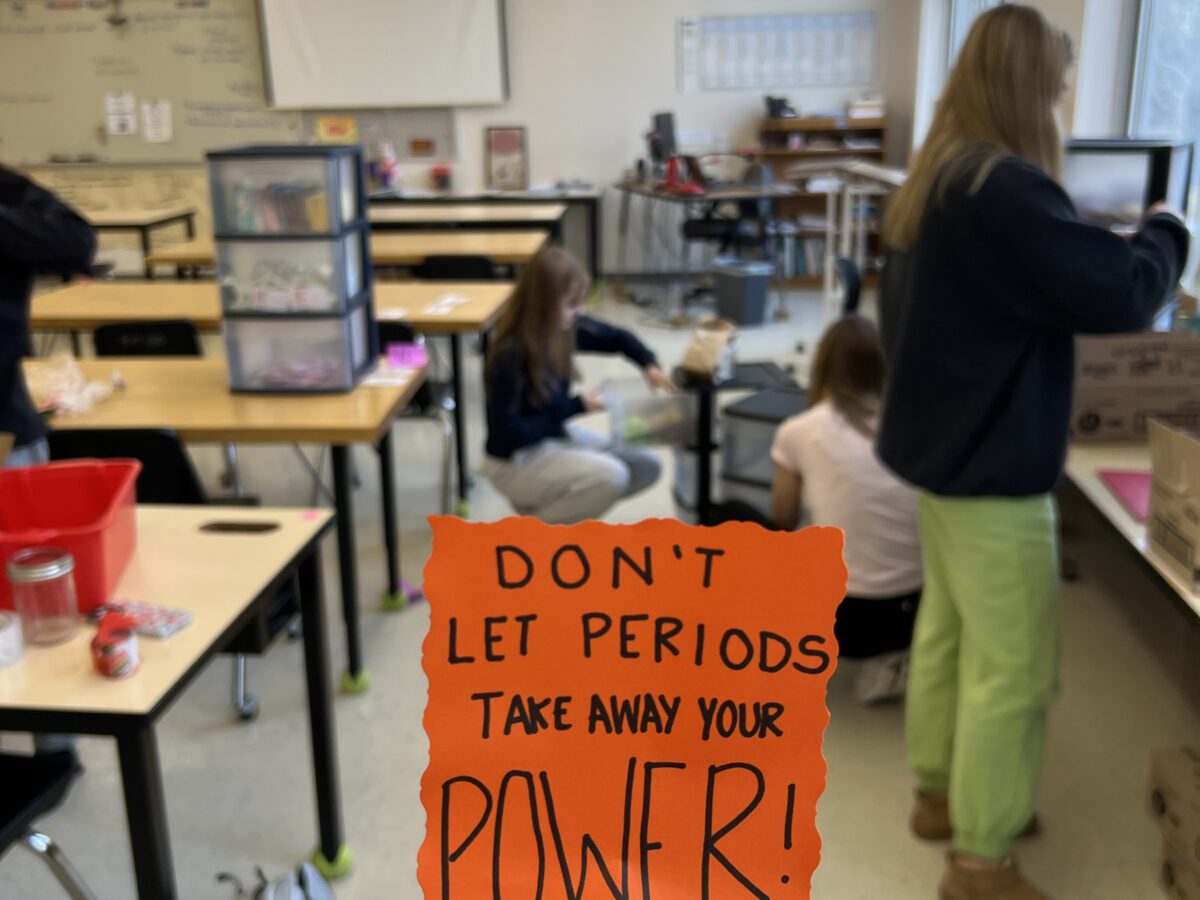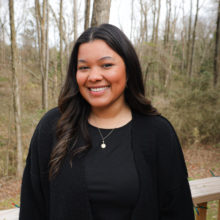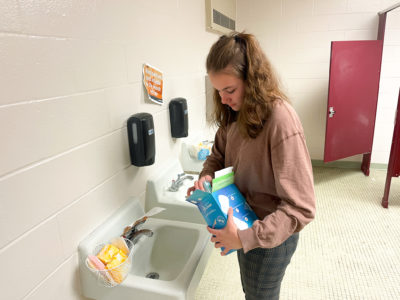

|
|
Students at all Guilford County Schools traditional high schools now have access to free period products, thanks to the Period Power initiative by the Diaper Bank of North Carolina.
The initiative’s expansion into Guilford County Schools was made possible by a grant from the Women to Women endowment at the Community Foundation of Greater Greensboro.
According to the National Library of Medicine, period poverty can be defined as “the lack of access to safe and hygienic menstrual products during monthly periods and inaccessibility to basic sanitation services or facilities as well as menstrual hygiene education.” One in 5 teens in the United States have struggled to afford period products or were not able to purchase them at all — Period Power aims to alleviate that burden.
The Diaper Bank of North Carolina first implemented Period Power initiatives in Durham Public Schools in 2014, but has since expanded to districts across the state, including large districts like Orange County Schools, New Hanover County Schools, and Winston-Salem/Forsyth County Schools. Today, the initiative serves more than 300 public schools across the state.
After the Diaper Bank of North Carolina received the $50,000 grant from Women to Women, they immediately began brainstorming how to implement these programs in Guilford County Schools. In addition to providing pads, tampons, and liners, Period Power also offers leggings, underwear, and shorts.
This lack of access to menstrual products causes some menstruating teens to miss school. More than 4 in 5 students in the United States have either missed class time or know someone who missed class time because they did not have access to period products.
Dr. Kimberly Steinke, the chief exceptional children and student services officer at Guilford County Schools, heard these numbers and realized that introducing the Period Power programs in her district was a no-brainer. And, it could potentially be a solution for another problem in the district — chronic absenteeism.
“There’s a lot of data that looks at student’s attendance, and they can miss a week of school just for not having appropriate products and supplies that they need for their periods,” Steinke said. “With our chronic attendance rates being what they are, anything we can do to keep kids in school, we want to do.”
Michelle Schaefer-Old, CEO and founder of the Diaper Bank of North Carolina, said Period Power is helping keep students in class.
“No one should have to choose between having their period and going to class, and we know that students every single day are making that choice and many of them choose not to go,” Schaefer-Old said.
So, what does it look like to have a Period Power program in a school?
Period Power programs are in more than 300 schools across North Carolina and are often individualized to each school’s needs. There are several ways that districts can make menstrual products available to students, but it really varies from school to school — and it’s almost always student-led.
“We found that the most successful programs were the student-led initiatives,” Schaefer-Old said. “They’re fantastic. They just do incredible work.”
In some programs, students are responsible for placing “orders” with the Diaper Bank of North Carolina, restocking supplies across campus, and displaying informational signage.
One way is to designate a few lockers around the school that are specifically set up to act as grab-and-go stations for students to receive products and information. Students will often display signage in bathrooms directing students to the nearest locker to pick up menstrual supplies, if needed. For Schaefer-Old, this is the preferred method because it makes products more accessible for any non-binary students at the school who might require menstrual products.
Another way is by setting up shelving in bathrooms. At some schools, teachers have “flow kits” available for students to pick up from their classrooms at any time. No matter the distribution method a school chooses, Period Power club students are responsible for ordering new products and replenishing the stock once they run out.
Period Power clubs launched in Guilford County Schools in March.
But, maintaining these kinds of programs is expensive. Schaefer-Old expects that the $50,000 grant for Guilford County Schools will only sustain the schools through the end of the 2024-25 school year. At that point, the district or the Diaper Bank of North Carolina will have to identify a different source of funding to keep the initiative going.
It’s an issue that’s being discussed at the state level, too.
The State Board of Education recently approved a report to the General Assembly on the Feminine Hygiene Products Grant Program, which was recently created in the state budget. Last school year, the state received a total of 149 applications with requests for funding amounts ranging from $300 to $5,000. The report shows that the State Board of Education was only able to fund 30% of the requests last year. In its most recent budget, the state doubled that allocation to $500,000 each year.
Guilford County Schools received a $5,000 grant from the state to implement Period Power programs at six of its middle schools.
Talking about period poverty requires taking a look at the stigma attached to periods and menstrual products. In this State of the Period report from Thinx & PERIOD, 64% of teens surveyed believe society teaches people to be ashamed of their periods. Eighty percent feel there is a negative association with periods — going as far as suggesting they are gross or unsanitary.
While Steinke considered implementing this program a no brainer, period poverty wasn’t an issue she was thinking of until Schaefer-Old brought it to the district’s attention.
“It seemed like a ‘Well duh, that makes total sense.’ But we never really thought about it,” Steinke said.
According to Schaefer-Old, it’s not one that funders are often thinking of either.
“It’s very, very difficult to get funding for period products. It is just not something that funders are willing to fund,” Schaefer-Old said. “When I first started, I just thought, ‘Oh, this will be so simple and people will get this.’”
But it hasn’t been so easy.
Schaefer-Old said the funding from the Women to Women endowment was a “hail Mary grant proposal,” but it ultimately paid off. It’s the largest funding for period products that the Diaper Bank of North Carolina has ever received.
Jaclyn King, membership chair for the Women to Women endowment, said implementing Period Power clubs at Guilford County Schools is also about empowerment.
“Hopefully this helps in breaking down some of those barriers because it makes it more accessible to talk about,” King said.
Editor’s note: This article was updated to correct the spelling of Michelle Schaefer-Old‘s last name.
Behind the Story
Cheyenne McNeill reported and wrote this story.
Alli Lindenberg contributed to the initial reporting for this story.




